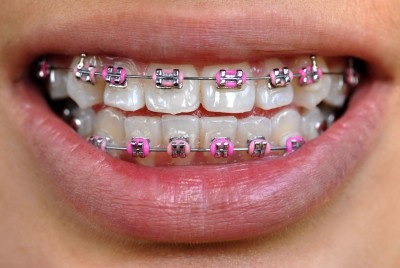
According to the American Association of Orthodontists, there are around 4 million Americans wearing braces today. Clear ceramic braces are among the most commonly worn. You might not be as familiar with them as you are with metal braces. Here’s what you need to know about clear ceramic braces.
Advantages of clear ceramic braces
People often choose to have clear ceramic braces because it’s not as visible as metal braces. In particular, young adults and teenagers prefer not to have attention drawn towards their braces during group outings or when giving public speeches. Clear ceramic braces are less visible because they’re made with materials that are tooth-colored or clear. In addition to being less visible, there’s less space taken up by the brackets on the front of your teeth. With advancements in removing clear ceramic braces, there may also be less chance that your tooth enamel will be damaged when they’re removed. In comparison to Invisalign, clear ceramic braces can help with more significant issues related to teeth straightening. This option can also be less likely to cause any cuts to your gums.
Disadvantages of clear ceramic braces
If not properly taken care of, clear ceramic braces can get stained easily. It’s important to consume fewer foods and drinks that cause stains. Additionally, it’s necessary to regularly brush them, which can take time due to having to use specific cleaning instruments. In the event of stains, orthodontists are able to change out the wires at your next appointment. Clear ceramic braces can also potentially be more expensive than metal braces. Be sure to consult with your orthodontist about payment plans to see if the costs can be managed. Lastly, your treatment may take longer than they would with metal braces. Discuss with your orthodontist about the timeline for when you’ll be able to have your clear ceramic braces removed.
Differences between clear ceramic braces and Invisalign
While both of these options provide clearness, there is some difference between them. Clear ceramic braces have brackets and wire, while Invisalign does not. Instead, Invisalign is a plastic aligner that goes over the teeth and helps to move them in the right position. Additionally, the appointments are not as long or frequent for Invisalign patients. Patients with clear ceramic braces have to have wires and brackets adjusted, which can take more time. It may also be less uncomfortable using Invisalign in comparison to clear ceramic braces. The option you choose will depend on what your specific teeth issues are. Your orthodontist will be able to determine which option is best for you.
Clear ceramic braces have both advantages and disadvantages for patients. It’s important to weigh the pros and cons in order to decide on the right option. Your orthodontist will be able to inform you about all of your options and recommend the best course of action.



